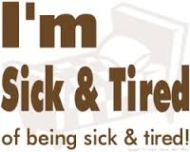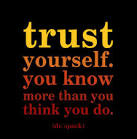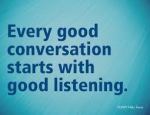 I’m not sure how well I will be able to write down what is in my mind right now as I combine thoughts from two totally different arenas of information, but let’s see if we can do this together:
I’m not sure how well I will be able to write down what is in my mind right now as I combine thoughts from two totally different arenas of information, but let’s see if we can do this together:
I suspect you have at least heard about the push that is being attempted to significantly raise the minimum wage. The idea is that it is too hard to raise a family on what the national minimum wage is right now and so the proposed idea that is floated out for consideration is that we just raise the minimum wage. There are so many problems with this idea that my computer would shut down before I would be able to write them all out, so I just want to hit a couple of thoughts for you as we connect this all to leadership.
I understand the idea that people can’t “live” on minimum wage, I agree, they can’t. But minimum wage jobs were never designed to be family sustaining jobs. They were the starter jobs as you grow, develop, get a deeper education and better ourselves over all. They were never designed to be the job you keep for several years. Those jobs pay what they pay because that’s all they’re worth to the economy, the industry and to the owner. When people demand the minimum wage be increased, they are really demanding that prices everywhere go up because no owner will ever absorb that cost, he will just pass it on to the consumer, or reduce his number of workers so that he is paying out the same amount of money…or both. Do you really want to be laid off, or have to do more work, or pay higher prices for a hamburger? No? Me neither.
I have heard some of the arguments that say that the people are worth more than what they’re being paid in these positions. If that is true, I repeat, IF that is true then those people can start by working with intention, passion and appreciation for where they’re at right now. This is a basic truth of life that applies across the board; if we focus on being successful where we’re at, we will greatly increase our chances for advancement. Christ told His disciples that if we learn to be faithful in a “little”, then we would be given the responsibility of having “more”. That makes sense. How do I know you can do the job I want you to do for me? Well, how are you doing your job now? How have you done your jobs in the past? If we have been focused on being successful where we’re working at now, we won’t stay at that level because people will want to advance us. Don’t you try to keep people close to you that you can trust?
Demanding more for a job that can’t be more is not only foolish it is arrogant. You don’t demand to get paid more for the job you do, you show that you can selflessly do the job you’re working at now and then you push yourself and you advance. I would suggest we want to advance not only in our jobs but in life too. If that is the case then focus on being great right where you work or live or serve today. Doors will open.

 hepherd is quoted as saying, “healing comes from taking responsibility: to realize that it is you – and no one else – that creates your thoughts, your feelings and your actions.”
hepherd is quoted as saying, “healing comes from taking responsibility: to realize that it is you – and no one else – that creates your thoughts, your feelings and your actions.”




